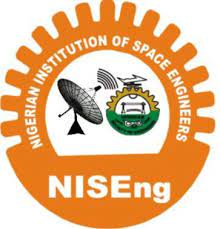How Nigeria can gain sovereignty of security – Space engineers
Nigeria can gain sovereignty of its security when it takes hold of manufacturing machine components used in addressing insecurity, the Nigerian Institution of Space Engineers (NISEng), has said. The NISEng stated this at its 13th National Conference and Annual General Meeting in Abuja at the weekend. A space engineer and guest lecturer at the conference, […]

Nigeria can gain sovereignty of its security when it takes hold of manufacturing machine components used in addressing insecurity, the Nigerian Institution of Space Engineers (NISEng), has said.
The NISEng stated this at its 13th National Conference and Annual General Meeting in Abuja at the weekend.
A space engineer and guest lecturer at the conference, Prof Spencer Onuh, decried that Nigeria’s aerospace manufacturing heavily depended on foreign nations, hence that it posed a challenge to national security stability.
Onu, who is a key member of the institution, said Nigeria’s strategic location along the Equator, its emerging economy and its pool of talented people placed it at an advantage as a potential hub for aerospace activities.
- NIGERIA DAILY: Are Nigerian Youths Still The Leaders Of Tomorrow?
- ‘My hubby cut my hair after I asked for divorce’
He defined aerospace manufacturing as the process of designing, developing and producing aircraft and spacecraft, as well as their various components and systems.
He further said, “Components can be machines or software which you order from countries that have these equipment, and they can hold you to ransom, and they do it diplomatically.
“There are some equipment you cannot buy off the shelf, but can be sold to a number of countries. If any of the equipment goes wrong, you still need to go through the same process to get them back, and except we have this independence, we can’t claim sovereignty.’’
He explained that the country needed to develop indigenous capacity, infrastructure and an enabling environment that would propel investments in aerospace manufacturing.
He advised that the government should implement Science, Technology, Engineering and Mathematics (STEM) education initiatives in schools, encourage intellectual property development and Public-Private Partnerships (PPPs) and engage stakeholders in developing aerospace activities.
On his part, the National Chairman of the institution, Dr Umar Abdullahi, said they had always expressed dedication to shaping the future of aerospace manufacturing as an important path to national security
